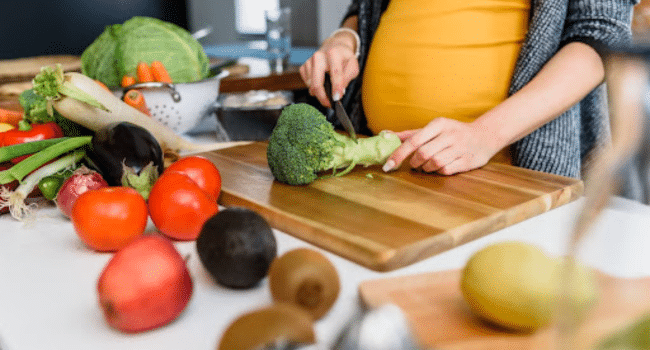Table of Contents
Becoming a new mom is an exciting and life-changing experience, but it also comes with increased nutritional demands. Your body undergoes significant changes during pregnancy and postpartum, and if you are breastfeeding, your nutrient needs are even higher. Ensuring you get the right vitamins and minerals can help support recovery, boost energy, and promote optimal health for both you and your baby.
One key nutrient that often gets overlooked is magnesium. If you’re wondering how much magnesium does a breastfeeding woman need, it’s important to know that adequate intake is crucial for maintaining muscle function, supporting bone health, and reducing postpartum fatigue.
Why Nutritional Needs Change After Birth
After giving birth, your body works hard to heal and adapt. Blood volume and hormone levels fluctuate, and if you’re breastfeeding, your nutrient stores are directly shared with your baby. This makes it essential to focus on a well-rounded diet rich in vitamins, minerals, and macronutrients. Skipping key nutrients can lead to fatigue, weakened immunity, and even mood disturbances such as postpartum depression.
Key Vitamins for New Moms
Vitamin D
Vitamin D plays a critical role in calcium absorption and bone health. Postpartum women, especially those who breastfeed, may require supplementation to maintain adequate levels, particularly if sunlight exposure is limited. Vitamin D deficiency can increase the risk of bone loss and affect your overall energy levels.
Vitamin B12
Vitamin B12 is essential for red blood cell production and neurological function. It is particularly important for breastfeeding mothers to prevent deficiencies that can affect both maternal health and the development of your baby. Foods rich in B12 include eggs, dairy, and fortified cereals, but supplementation may be necessary for those following a vegetarian or vegan diet.
Vitamin C
Vitamin C is a powerful antioxidant that supports immune function and helps with collagen production, aiding in tissue repair after childbirth. Consuming fresh fruits and vegetables like oranges, strawberries, and bell peppers can help meet daily requirements.
Essential Minerals
Iron
Iron levels often drop during pregnancy and birth due to blood loss. Replenishing iron is crucial to prevent anemia, which can cause fatigue, dizziness, and decreased immune function. Iron-rich foods include lean meats, beans, lentils, and leafy green vegetables. Pairing these with vitamin C-rich foods enhances absorption.
Calcium
Calcium is vital for maintaining strong bones, especially when breastfeeding, as your body transfers calcium to your baby’s developing bones. Dairy products, fortified plant milks, leafy greens, and almonds are excellent sources of calcium.
Magnesium
Magnesium supports hundreds of biochemical processes in the body, including energy production, muscle function, and mood regulation. Breastfeeding can increase magnesium needs, which is why it’s important to track your intake. For specific guidance on this, you can refer to how much magnesium does a breastfeeding woman need. Foods high in magnesium include nuts, seeds, whole grains, and leafy green vegetables.
Zinc
Zinc is crucial for immune support, wound healing, and DNA synthesis. Postpartum zinc intake helps your body recover more efficiently and supports your baby’s growth through breast milk. Oysters, red meat, poultry, beans, and whole grains are good dietary sources of zinc.
Healthy Fats and Protein
Adequate protein intake is necessary for tissue repair, hormone production, and maintaining energy levels. Include lean meats, eggs, dairy, legumes, and nuts in your meals.
Healthy fats, such as omega-3 fatty acids found in fatty fish, flaxseeds, and walnuts, support brain function and may help reduce postpartum depression symptoms. These fats are also essential for your baby’s brain and eye development.
Hydration and Fiber
Staying hydrated is often underestimated but is critical, especially for breastfeeding mothers. Water supports milk production, digestion, and overall energy levels. Aim for at least 8–10 cups of water daily, adjusting as needed based on activity levels.
Fiber also plays a key role in preventing constipation, a common postpartum issue. Whole grains, fruits, vegetables, and legumes provide both fiber and important micronutrients.
Tips for Meeting Nutritional Needs
- Plan Balanced Meals: Include a mix of protein, healthy fats, whole grains, fruits, and vegetables in every meal.
- Consider Postnatal Vitamins: A high-quality postnatal multivitamin can help fill in gaps in your diet.
- Snack Wisely: Nuts, yogurt, and fruit make nutrient-rich, convenient snacks.
- Track Nutrients: Monitoring iron, calcium, magnesium, and vitamin D intake ensures you are meeting your needs.
- Consult a Professional: A registered dietitian or healthcare provider can personalize a nutrition plan tailored to your postpartum recovery and breastfeeding needs.
Meeting your nutritional needs after childbirth is not just about your health—it directly affects your baby’s growth and development. Focusing on vitamins, minerals, healthy fats, protein, hydration, and fiber ensures you have the energy and nutrients to thrive during this transformative time. By paying attention to your diet and supplementing where necessary, you can support both your recovery and your baby’s optimal development.
